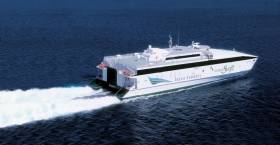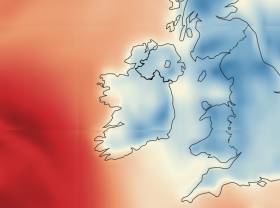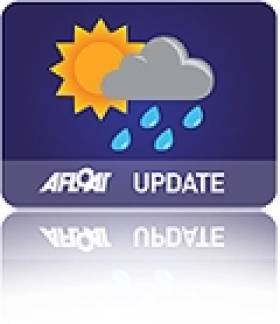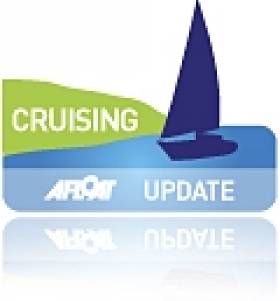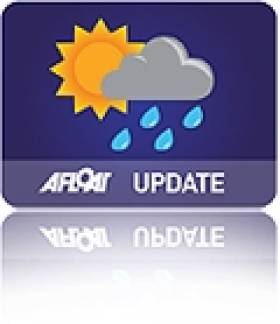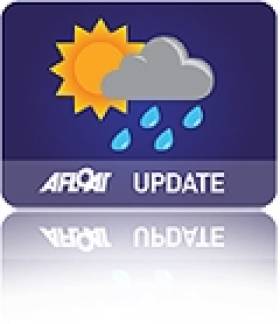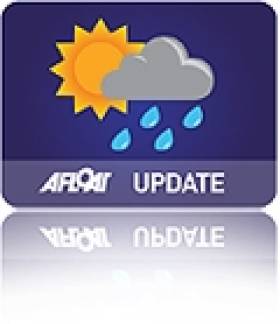Displaying items by tag: wind
Colaiste Iognaid Edged Out by Methody at Irish Schools' Regatta
Lough Rynn Regatta Cancelled due to Weather Forecast
#Rowing: The organisers of Lough Rynn Regatta, set for Saturday, have cancelled the event. As Thursday went on the weather forecasts suggested that the mean speed of the win would be over 20 kilometres per hour with gusts which could make rowing on some parts of the course unsafe.
John Walsh, the regatta secretary, sent out a statement which said:
It is with huge regret and a heavy heart that the committee of Lough Rynn Regatta communicates this press release to inform the clubs that the Regatta for 2018 scheduled for 5th May 2018 has been cancelled due to the forecasted wind and wind gusts that are promised tomorrow during the middle of the day.
In the interest of athlete and volunteer safety we have made this decision in as timely a manner as possible. We gave the forecast every chance to improve once it deterioated yesterday afternoon and have even debated which forecast is the best to use. To be fair to all of the 41 clubs and 443 crews that were due to compete on the day and that were to due to travel from all over the country this decision is now being communicated in line with the initial announcement last night.
We would sincerely like to thank each and every one of the clubs, athletes and coaches who entered in such large numbers and to our army of volunteers who had set aside their day for the hosting of a successful regatta. Included in our volunteer rota was Mr. Eamonn Colclough, President of Rowing Ireland and Ms Michelle Carpenter the newly appointed CEO of Rowing Ireland. All our volunteers who have worked tirelessly over the past number of weeks are all equally devasted but safety comes first in this instance.
We will review the rowing calendar and hopefully will be back later in the year with an alternative event / date.
Thank you all for your continued support.
Yours in rowing
John Walsh
Regatta Secretary
Storm Ewan Disrupts Sunday Ferry Sailings On Irish Sea
#StormEwan - Hot on the heels of last week’s Storm Doris, there is further ferry disruption today (Sunday 26 February) as Storm Ewan brings strong gusts to the East Coast.
Irish Ferries has cancelled its 8.45am and 2.30pm sailings from Dublin to Holyhead, as well as its 11.50am and 5.15pm return trips, all on the Swift, due to the adverse weather conditions forecast for the Irish Sea.
Met Éireann has issued a Status Orange national weather warning and gale warning as south to southwest winds are expected to reach Force 8-9 with storm force gusts on coasts from Malin Head to Carnsore Point to Valentia and on the Irish Sea.
Small craft are also warned as west to southwest winds will reach Force 6 or higher from Valentia to Slyne Head to Malin Head.
The most damaging gusts of up to 120kmh are expected along southern coasts, with a wind warning issued for Wexford, Cork, Kerry and Waterford until early this afternoon.
A Status Yellow warning is in place over mean wind speeds upwards of 50kmh and gusts of up to 110km in all other coastal and some Midlands counties in Leinster.
Wind Warning For West Coast This Monday Night
#Weather - Batten down the hatches: the West of Ireland is in for a windy one this coming Monday night (5 February).
The latest maps from Dark Sky show a large weather mass of high winds barrelling across the Atlantic from the west on Monday evening, reaching the Wild Atlantic Way after midnight.
Before that, Met Éireann warns to expect of heavy rain and windy weather nationwide with strong southeast winds.
Sailor Killed In Deck Accident On Windy Solent
#Cowes - The Island Echo reports on the death of a yachtsman on the Solent this afternoon after a blow to the head from his vessel's boom.
It's understood that the yachtsman was en route from Southampton to Yarmouth when the boat was diverted to Cowes on the Isle of Wight to shelter from persisting high winds.
It marks the second incident in two days in which strong winds from the tail end of Hurricane Bertha were a factor, after a Norwegian man was treated for arm and shoulder injuries in a gybe accident.
And this afternoon at least 10 dinghy sailors were injured when the GP14 Worlds fleet capsized in a squall on Strangford Lough in Northern Ireland.
Red Alert – Winds to Reach 150km, High Seas Forecast
#storm – Met Eireann have issued a 'status red' weather warning for Western and Northwestern counties, Galway, Mayo, Sligo, Leitrim and Donegal.
Storms will develop later today, with strong south to southwest winds expected over those counties, with damaging gusts of 120 to 150 km/h this afternoon and evening. This will also lead to very high seas.
Shipwreck Highlights Danger of Portugal's Winter Winds
#Shipwreck - Two are reported dead after a shipwreck yesterday (Wednesday 10 April) on the Portuguese coast in what is a reminder to all cruisers of the dangers of strong winds in the region.
According to Portuguese language newspaper Publico, the deceased include one of the five crew of the German-flagged cruiser Meri Tuuli, and a member of the Portuguese maritime police attending to the incident who went into the water when his RIB overturned.
Eight people in total were admitted to hospital after the incident in which the Meri Tuuli - an X-442 yacht perated by a local sailing school - capsized on Cabedelo beach in Figueira da Foz, near Oporto.
Two are reported to be "wounded with traumatic injuries" while another two showed symptoms of hypothermia after exposure to the water.
Figueira da Foz is a popular cruising destination along the Iberian coast, but its port is vulnerable to the high swells that attract surfers to the area, sometimes closing altogether.
A source close to Afloat.ie described most harbour entrances along Portugal's west coast as "lethal during of after strong winter south or southwest winds" which are made stronger as air rushes into the valleys at river mouths as sea breezes.
Met Éireann Issues 'Yellow' Alert As Strong Gales Sweep Coast
#Weather - Met Éireann has issued a 'yellow' weather alert for coastal areas around Ireland today (4 February) as winds are expected to reach speeds of up to 110km/h.
Westerly winds will continue to reach gale force or strong gale force this evening and tonight on all Irish coastal waters and on the Irish Sea.
Severe gusts of 90 to 110 km/h are predicted for Connacht, Donegal and in coastal areas of Munster. Elsewhere winds will gust between 80 and 90 km/hr.
After dark, showers will become increasingly wintry with the possibility of snow and even blizzard-like conditions, especially in the north and west on high ground.
But meteorologists say that any lying snow will melt during the course of tomorrow morning and afternoon as temperatures rise.
Small Craft Warning For St Stephen's Day As High Winds Return
#Weather - After a relative lull for Christmas Day, Met Éireann warns that the high winds that swept across Ireland at the weekend will make their return today (26 December).
A small craft warning has been issued with west to southwest gales expected to reach force 6 or 7 this afternoon on coasts from Carlingford Lough to Wicklow Head to Carnsore Point.
Winds will also occasionally reach strong gale force this afternoon between Loop Head and Erris Head.
The weather service reports that westerly winds will reach up to 60 km per hour this afternoon and early evening with gusts of 70-100 km at their strongest in west Connacht.
Met Éireann Warns Of Storm Force Winds Around Coast
#Weather - Met Éireann has issued a weather warning for tonight (Saturday 22 December) with winds expected to reach up to 110km an hour.
Tonight and tomorrow morning, south-west to west winds are likely to increase in most parts of the country, with mean speeds and gusts that "have the potential to be damaging".
The Irish weather service also reports strong gales on all Irish coastal waters and on the Irish Sea, with winds expected to reach storm force later on coasts from Valentia to Erris Head to Fair Head.



























